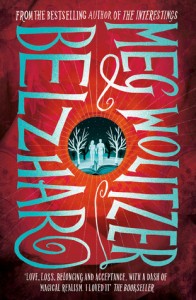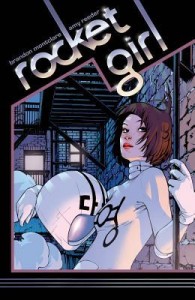 Title: Beowulf (Goodreads)
Title: Beowulf (Goodreads)
Author: Anonymous
Translator: Michael Alexander
Published: Penguin, 800
Pages: 137
Genres: Classic
My Copy: Paperback
Buy: Amazon, Book Depository, Kindle (or visit your local Indie bookstore)
Beowulf is one of the oldest, complete surviving epic poems in existent. There are a few others from the same era that have survived in fragments, so the significance of Beowulf remains in regards to English literature. Written in Old English (or Anglo-Saxon) the manuscript of Beowulf is believed to date back to the 10th century (1,000AD). This is an example of a heroic poem, which can be defined as a text that deals with heroic actions in battle. Beowulf focuses on three great battles, with Grendel, Grendel’s Mother, and a Dragon.
While this is an English poem it is interesting to note that it is not set in England but southern Scandinavia, half in Denmark and the other in Geatland (or Götaland) which is one of three lands of Sweden. Beowulf does incorporate a large amount of Norse and Germanic history and legends, however I don’t have the knowledge to pick up on this within the text, just information I learnt after the reading. I suspect that this information was added into the poem to help pass on the information to Anglo-Saxon people, like a history lesson or as the poet calls it “the treasured repertory” (line 871). It is believed that Beowulf was composed in a time of stability, in a time of some democracy; an early medieval Christian civilisation. One might say this was an age where art and literature were flourishing and often used as methods of education.
Beowulf was no exception. What I got out of this poem was a reflection of the cultural and, to a lesser extent, political views of the time; a civilisation that values courtesy and formality. Chivalry, generosity and thoughtfulness are valued but still have a strong sense of precariousness, ready of imminent attack and war. Strength is still considered important; Beowulf is a warrior willing to fight against enemies both human and demonic. He even travelled to another country to fight a demonic menace. However you have to look to the other warriors as well, who appear as strong and capable as Beowulf but without their faith are rendered useless.
The role of the poet (or bard) is actually depicted in the poem itself several times. The poet is “…a fellow of the king’s” (line 868) which suggests that he is of a high rank. One who knows old and traditional stories, “Whose head was a storehouse of the storied verse, whose tongue gave gold to the language” (line 870). This allows the poem to have a unique perspective on the events that unfolds within Beowulf, a tactic that doesn’t always get explained within modern literature.
It is said that you can interpret this poem as having both Christian and pagan themes; however for me this had a very strong religious message. A battle of good and evil but I suspect this wasn’t a conflict of morality but an inevitable clash between the two. In a Christian context, Beowulf could be compared to Jesus, coming to save our souls from evil. You can even compare it to the story of Cain and Abel which is referenced within the text of Beowulf.
Given that Beowulf is meant to be experienced a spoken word I found myself struggling to read this as a written text. I had a look for the Michael Alexander translation (which was assigned to me for my university course) but was unsuccessful. However I did try to think about the text as if it was a story been spoken and I found it difficult. For me the narrative felt too slow, it lacked suspense and felt a little awkward (possibly the translation). The obscure historical allusions may not have been an issue back in the 800AD but it was for a modern reading.
I was nervous about reading Odyssey by but ended up loving it; I was hoping I would have a similar experience here. I suspected that Beowulf will remain a difficult text. There is some historical context that would be helpful before going into the poem that I just didn’t get. Reading the epic poem as part of a university course did help but for me it wasn’t enough. Medieval literature will remain difficult for me and would rather enjoy something a little more recent, like the 19th century. If you have read Beowulf and have some interesting insights that might help get my head around it, please let me know.

 I am currently reading Belzhar by Meg Wolitzer and part of her English class, Jam has to write a journal and this got me thinking about journaling on the whole. I have always wanted to be able to journal but never really found an ability to do so; the words wouldn’t come out and I was never consistent enough to get any better. However, I am addicted to book blogging, I always want to talk about bookish things and I think I can work with that. I was talking to my wife about journaling. She is great at it; it comes naturally but she has been writing in a journal since she was ten. I do consider my blog here as a book journal that documents my bookish journey so why not expand on that a little bit.
I am currently reading Belzhar by Meg Wolitzer and part of her English class, Jam has to write a journal and this got me thinking about journaling on the whole. I have always wanted to be able to journal but never really found an ability to do so; the words wouldn’t come out and I was never consistent enough to get any better. However, I am addicted to book blogging, I always want to talk about bookish things and I think I can work with that. I was talking to my wife about journaling. She is great at it; it comes naturally but she has been writing in a journal since she was ten. I do consider my blog here as a book journal that documents my bookish journey so why not expand on that a little bit. Title: The Circle (
Title: The Circle ( I don’t think I am the only reader out there that loves stats. I am constantly wondering how books fit into my end of year statistics. I even have a page on my blog where you can look at my
I don’t think I am the only reader out there that loves stats. I am constantly wondering how books fit into my end of year statistics. I even have a page on my blog where you can look at my  Title: Difficult Men (
Title: Difficult Men ( Title: California (
Title: California ( Title: A Death in the Family (
Title: A Death in the Family ( Title: The Odyssey (
Title: The Odyssey ( Title: Rocket Girl, Vol. 1: Time Squared (
Title: Rocket Girl, Vol. 1: Time Squared ( Title: Dept. of Speculation (
Title: Dept. of Speculation (